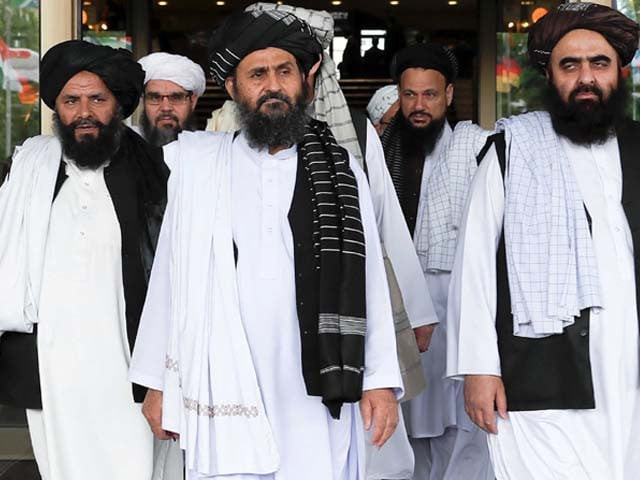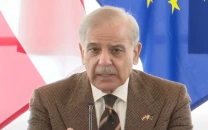Pakistan rules out solo flight on Taliban recognition
FO spokesperson says Islamabad thinks a regional, consensual approach will be the best

Pakistan said on Friday it would recognise the Afghan Taliban government through a regional and consensual approach, rather than taking a solo flight on the matter as Islamabad did during the first Taliban government in Kabul in the 1990s.
Taliban rose to power in the mid-90s but were ousted from the government after US launched military operation against their regime in 2001. They returned to power in August last year after the withdrawal of the US forces, but no country had recognised their government, so far.
“We thought that it would be the best to do it through a regional, consensual approach,” Foreign Office Spokesperson Asim Iftikhar told his regular weekly news briefing, when asked whether Pakistan was contemplating recognising the Taliban rule.
Despite no formal recognition, many countries have opened their missions in Kabul. Even India, which in the past maintained no contacts with the Taliban, has now established contacts with the de facto rulers of Afghanistan.
In March this year, some countries, including Pakistan, were close to legitimising the Taliban rule but withheld their decisions at the last moment, citing lack of progress on commitments made by the Taliban on certain issues.
As the Taliban are completing one year in power next month, the spokesperson, while giving Pakistan’s assessment noted the improved security situation in Afghanistan but said the humanitarian and economic situation was “quite grave”.
“And there is increasing understanding that some kind of engagement with the interim Afghan authorities is essential to address this situation. So it is in that context, that different countries, at different levels, they are in touch or engaged with the Afghan interim authorities,” he added, while explaining the rationale behind engaging with the Taliban despite not recognising them.
“So some [countries] are maintaining embassies there, Pakistan is one [of them]. There are other countries, who are maintaining embassies in Afghanistan. So if you would like to link it to the question of recognition, it's not about that,” he added.
Responding to a recent UN report that highlighted the threat posed by al-Qaeda, Daesh-Khorasan and the Tehreek-e-Taliban, Pakistan (TTP), Asim Iftikhar said that one of the expectations from Taliban from the international community, vis-a-vis the interim authorities in Afghanistan was that the Afghan territory should not be used for terrorism against any one.
“This expectation remains there. I think this is a collective responsibility, because this is not a new problem. Some of these groups have been there for a long time, and this problem has existed and lingered on,” the spokesperson said.
“I think one of the ways to address this problem is to engage with the Afghan authorities to help them in different ways – in capacity building and other assistance that would enable them to effectively tackle some of these groups because as we have said, on many occasions, this is a threat that is common to all.”
The spokesperson noted that these groups posed a threat to the stability of Afghanistan itself as well as to Pakistan and other countries in the region and globally. “So it needs to be addressed in a cooperative manner,” Asim Iftikhar stressed.
Iranian envoy
Meanwhile, Iran’s Special Representative to the President on Afghanistan Hassan Kazemi Ghomi, called on Foreign Minister Bilawal Bhutto Zardari. During the meeting, Bilawal reaffirmed Pakistan’s commitment to a peaceful, stable, prosperous and connected Afghanistan.
The foreign minister underscored the importance of close cooperation between Pakistan and Iran on matters relating to Afghanistan, including refugee management, regional security, and institutional mechanisms.
Bilawal highlighted provision of humanitarian assistance to Afghanistan by Pakistan, including recent relief efforts in wake of the devastating earthquake in eastern Afghanistan on June 22, 2022.
He also reiterated the importance of continued constructive engagement and practical cooperation with the interim Afghan government in order to promote the objective of sustainable peace and security in the region.
On the bilateral ties, the foreign minister expressed Pakistan’s keen desire to further strengthen relations with Iran, which are rooted deep in common faith, shared history, and cultural affinities. He also highlighted the importance of regular exchanges to advance economic and trade relations, energy cooperation, regional security and connectivity.
Special Envoy Ghomi noted that Iran associated high importance to its relations with Pakistan. He appreciated the constructive role played by Pakistan in Afghanistan and underscored that peace and stability in Afghanistan were essential pre-requisites for the region’s long-term stability and prosperity.
Earlier, the Iranian special representative met his Pakistani counterpart, Ambassador (retd) Mohammad Sadiq. Both sides discussed the evolving situation in Afghanistan and highlighted the importance of pursuing continuous and practical engagement, and reviewed various trade and connectivity initiatives in the region.


















COMMENTS
Comments are moderated and generally will be posted if they are on-topic and not abusive.
For more information, please see our Comments FAQ